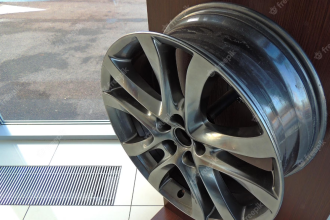Owning a car means you can conveniently travel anywhere and anytime you want. You have control and independence over your travels. Cars can also be cost-efficient, as you’re not using public transit, ride-sharing, or carpooling.
Since your car is a prized possession that helps with daily living, you must take care of it. Regular maintenance is necessary to prevent you from spending money on expensive repairs. In 2021, personal expenses for vehicle maintenance and repair in the United States rose by 194.92 billion USD. Five years prior, this number had seen significant fluctuations.
One of the most vital car components is the engine. It carries all the necessary power, so your car can function smoothly. Engine failure can occur without proper care, so keep reading to learn the importance of car engine maintenance and the tips you can use at home.
The Importance of Car Engine Maintenance
Car engine maintenance is essential to ensure safety. A well-maintained car engine can guarantee you’re driving a safe and secure vehicle for road safety. Through this, you protect yourself and other road users from accidents and injuries.
At the same time, you can extend your car’s lifespan and enhance its durability with proper engine maintenance. Besides not allowing dirt and dated oil buildups, you will also notice potential damages earlier, reducing the likelihood of costly repairs and replacements. This early prevention allows you to save time and money.
If you have plans to resell your car, engine maintenance can still make it conditioned and high-performing, giving you a high resale value.
Car Engine Maintenance Tips
You’re supposed to run essential errands, but suddenly, the car won’t start because of engine failure. Why did the engine fail? While wondering what’s wrong, ask yourself, “Was I able to check my car regularly?” It’s because damages may have already been present and you just failed to notice them.
Here are helpful ways to conduct car engine maintenance to prevent you from reaching this situation.
Change the oil regularly
Your car engine’s oil can wear off from dust and debris contamination over time. When this happens, it can affect the car’s overall function and performance. This is why you must change the engine oil regularly.
Changing your car’s engine oil can make the engine cleaner, reduce carbon emissions, and increase gas mileage. The new oil can also provide more lubrication, reducing engine friction so it runs safely and smoothly.
Check the cooling system
The cooling system regulates your car’s temperature. Here, you use coolants to prevent engine overheating and corrosion. During cold weather, antifreeze is instead used.
A faulty cooling system can cause engine failure. Here’s how to check yours:
- Monitoring coolant levels – Ensure that the engine is cold when doing this. You should always keep these levels healthy for optimal engine performance.
- Flushing – If the car continues to overheat, even if the coolant levels are at their best, it might be time for a flush and replacement. Like oil, coolants are also replaced regularly.
- Examining the hoses – Damaged hoses can restrict the engine water flow. Examine and replace them when necessary to avoid overheating and leaks.
- Paying attention to the radiator cap – It can malfunction when dirty. If this happens, unscrew it and put in a new one. Turn off the car and ensure that it’s cold while doing this.
Clean the air filter
As the name implies, the air filter filters the outside air to prevent dirt and debris accumulation in your combustion chamber. When left uncleaned for too long, it can impact the engine’s airflow. Therefore, you should maintain a regular air filter cleaning schedule.
Steps for cleaning your air filter:
- Take the filter out.
- Clean the filter. If it’s mildly dirty, you can use a vacuum. When it’s too dirty, clean it with water.
- After cleaning, shake the remaining water and set it somewhere to dry.
- When you have an oiled filter, saturate it with a new one after drying.
Inspect for leaks
Leakages will usually come from the engine and cooling system. The most apparent sign of leaks is when you notice fluid under your car. When you’re on the road, and this happens, go to the nearest mechanic.
Examine the spark plugs and wires
When your car starts, the spark plugs ignite the engine. Meanwhile, the wires deliver electricity to the spark plugs’ ignition coil. Like many car components, they can break over time, resulting in misfires and power loss. For these reasons, regular spark plug and wire examinations are vital so you can replace them when needed.
Get Your Car’s Engine Professionally Maintained
Car engine maintenance can be overwhelming and time-consuming when you DIY it. Seeking a professional car maintenance service is ideal if you can’t afford to do it manually because their expertise can efficiently provide the best results to keep your car working for a long time.















